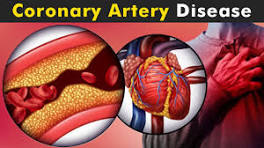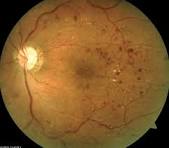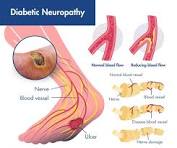INTRODUCTION
Health is wealth—a simple yet profound truth. One sickness can drain a
lifetime of savings, leaving individuals and families in distress. While modern
medicine has made remarkable strides in diagnosing and treating diseases, many
health conditions continue to defy medical solutions, pushing us to explore
alternative approaches.
Natural Remedies For Coronary Artery Disease (CAD)
Coronary Artery Disease is a condition in which the coronary arteries,
responsible for supplying oxygen-rich blood to the heart, become
narrowed or blocked, often due to plaque buildup. Alongside medical
treatment and lifestyle changes, some natural remedies may help
support heart health. Below are seven natural options, with
explanations, preparation methods, and sourcing information:
1. Garlic
How it works: Garlic contains allicin, a compound that may help
reduce cholesterol and blood pressure—two major risk factors for
CAD. Its antioxidant and anti-inflammatory effects may also
support cardiovascular health.
Preparation: Eat 2–3 cloves of fresh, raw garlic daily. You can
also include garlic in your cooking or take standardized garlic
supplements.
Where to find: Garlic is widely available in local markets close
to you and can also be grown at home.
2. Turmeric
How it works: Turmeric’s active ingredient, curcumin, is known
for its strong anti-inflammatory and antioxidant effects, which
may help reduce arterial inflammation and oxidative stress linked
to CAD.
Preparation: Boil 1 teaspoon of turmeric powder in a cup of
water to make tea. You may also incorporate turmeric into meals
such as soups, stews, or rice dishes.
Where to find: Turmeric is available as a ground spice in most
local markets close to you.
3. Hawthorn
How it works: Hawthorn is a traditional heart tonic that may
improve coronary blood flow, reduce blood pressure, and
enhance heart muscle contraction.
Preparation: Prepare hawthorn tea by steeping dried berries or
leaves in hot water. Follow the dosage instructions on packaged
products or as recommended by a herbalist.
Where to find: Available in health food stores as tea, dried herb,
or capsules.
4. Omega-3 Fatty Acids
How they work: Omega-3 fatty acids help reduce triglycerides,
lower blood pressure, and minimize plaque formation in arteries.
They also have anti-inflammatory effects that benefit
cardiovascular health.
Preparation: Eat fatty fish (like salmon, mackerel, or sardines)
at least twice a week. Alternatively, add ground flaxseeds or
walnuts to meals or take fish oil supplements.
Where to find: Fatty fish is available in local markets. Flaxseeds,
walnuts, and supplements can be found in health food stores.
5. Cayenne Pepper
How it works: Cayenne pepper contains capsaicin, a compound
that may help enhance circulation, reduce blood clotting, and
lower blood pressure levels.
Preparation: Mix 1/4 to 1/2 teaspoon of cayenne pepper powder
into a glass of warm water. Drink once daily. Use with caution if
you are sensitive to spicy foods.
Where to find: Available as a dried spice in local markets close
to you.
6. Ginger
How it works: Ginger possesses anti-inflammatory and
antiplatelet properties that may help prevent arterial blockages
and improve overall heart function.
Preparation: Slice or grate fresh ginger and steep it in boiling
water for 10–15 minutes to make tea. Drink 1–2 cups daily.
Where to find: Fresh ginger is available in most local markets
close to you.
7. Green Tea
How it works: Green tea is packed with catechins and
antioxidants that may help lower LDL cholesterol and improve
the flexibility of blood vessels.
Preparation: Brew green tea using a tea bag or loose leaves. Let
it steep for 3–5 minutes. Drink 1–2 cups per day.
Where to find: Green tea is widely available in tea shops,
supermarkets, and local markets near you.
Key Consideration
These natural remedies are not substitutes for prescribed medications
or professional medical care. They should be used only as supportive
treatments alongside a heart-healthy diet, regular exercise, stress
management, and clinical monitoring. Always consult your healthcare
provider before beginning any new herbal or nutritional regimen,
especially if you are on medications for blood pressure, cholesterol, or
other heart-related conditions.



